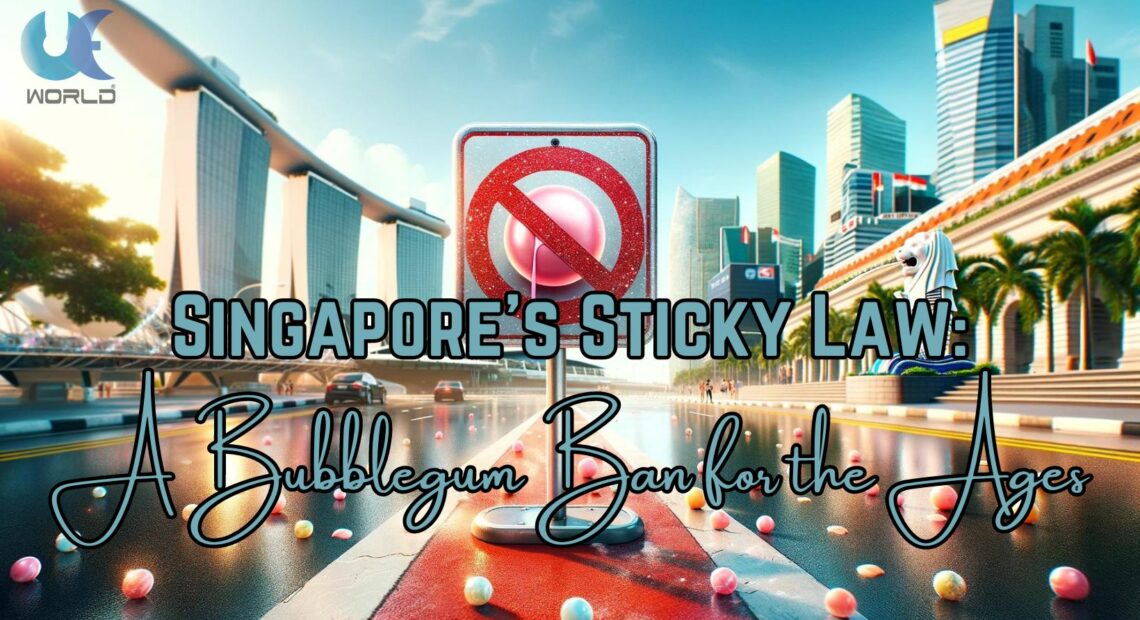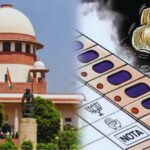Gum-Free Streets: Singapore’s Sticky Solution to Public Cleanliness

In the sparkling clean city-state of Singapore, where the streets are as pristine as the reputation of its governance, there lies an intriguing ban that has piqued the curiosity of many a traveler: the prohibition of chewing gum sales. Since 1992, the act of purchasing a packet of bubblegum in Singapore has not just been difficult; it’s been illegal. This unique piece of legislation has roots deeply embedded in practical concerns, embodying Singapore’s commitment to public order and cleanliness. But what drove this bustling metropolis to take such a firm stance against a seemingly harmless confectionery?
A Sticky Situation
Singapore’s ban on the sale of chewing gum was not an impulsive decision nor a disdain for the chewy treat itself. The ban was a calculated response to a series of public nuisances and infrastructural damages caused by discarded gum. Imagine stepping onto a subway, only to find the doors jammed by a wad of gum thoughtlessly stuck by a passenger. Or picture trying to withdraw cash, but the ATM’s slots are clogged with the sticky substance. These were not mere hypotheticals but real issues that plagued Singapore in the late 20th century.
The Cost of Carelessness
The misuse of chewing gum reached a tipping point with the introduction of the Mass Rapid Transit (MRT) system, Singapore’s pride in public transport. Vandalism through gum caused delays and disruptions, impacting the daily commute of thousands. The cost of cleaning and repairing gum-damaged public property was not just financial but also reputational. Singapore’s global image as a clean, efficient city was at stake.
The Ban and Beyond
In 1992, the government took a bold step by outlawing the sale of chewing gum. The move was met with mixed reactions, from disbelief to amusement, but over time it has become one of the many quirks that define Singapore’s unique approach to governance. The ban, while strict, does have its exceptions. Therapeutic, dental, and nicotine gums are allowed, reflecting the state’s pragmatic approach: addressing the problem without compromising on health benefits that certain types of gum can offer.
A Reflection of Values
The bubblegum ban is more than just a law; it’s a statement. It reflects Singapore’s broader values of collective responsibility, cleanliness, and respect for public spaces. It serves as a reminder that individual actions, no matter how small, can have a significant impact on the community. The ban stands as a testament to Singapore’s willingness to implement unconventional solutions for the greater good.
A World Curiosity
For visitors, the absence of chewing gum on Singapore’s streets is a novelty, a peculiar aspect of the local culture. It has become a talking point, an anecdote to share about the city-state’s distinct way of life. The bubblegum ban has, in its own right, contributed to Singapore’s identity, marking it as a place where communal well-being is prioritized over individual indulgences.
As we chew over the reasons behind Singapore’s gum ban, it’s clear that this law, while seemingly trivial, encapsulates the essence of Singaporean society: a commitment to cleanliness, order, and the collective good. So, the next time you enjoy a piece of bubblegum, spare a thought for the city where such a simple pleasure is part of a broader social contract, one that has helped keep Singapore clean, green, and serene.
Pic Courtesy: google/ images are subject to copyright













